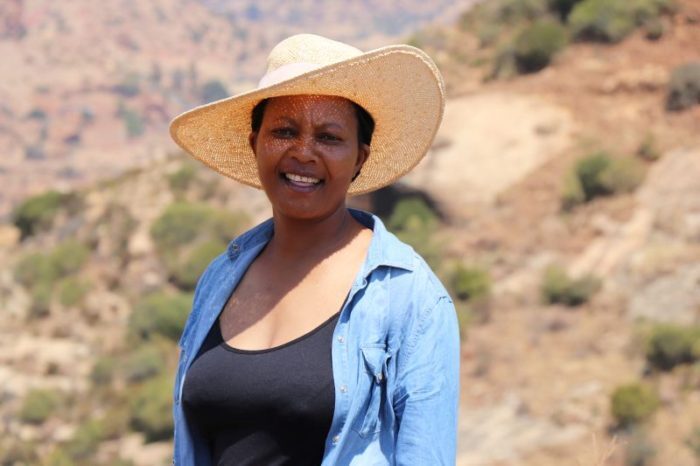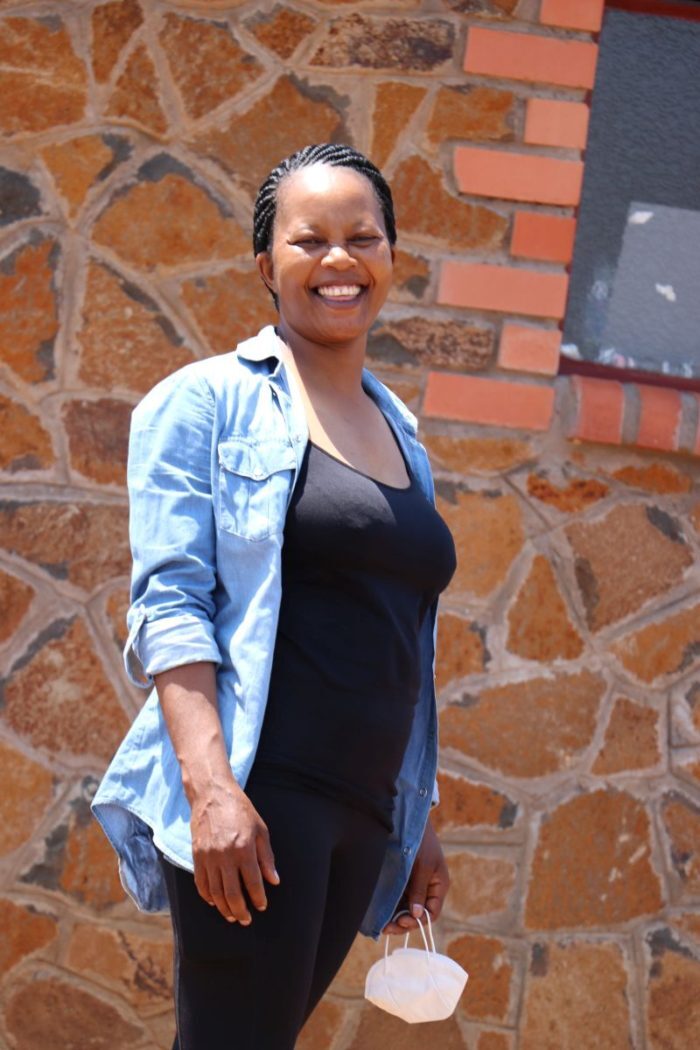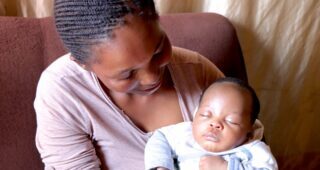I Feel Empowered to Talk About Cervical Cancer
 Makhothatso Matsela, 41, is a primary teacher living in Maseru, Lesotho. In 2006, she learned that she is HIV-positive. Makhothatso enrolled on antiretroviral treatment (ART) and openly shares her HIV status to encourage others to get tested and adhere to treatment if they are positive. She talks to her neighbors, church congregation, and fellow teachers about HIV testing and healthy living.
Makhothatso Matsela, 41, is a primary teacher living in Maseru, Lesotho. In 2006, she learned that she is HIV-positive. Makhothatso enrolled on antiretroviral treatment (ART) and openly shares her HIV status to encourage others to get tested and adhere to treatment if they are positive. She talks to her neighbors, church congregation, and fellow teachers about HIV testing and healthy living.
Always mindful of her health, Makhothatso was prompted to screen for cervical cancer because of challenges she was having related to her sexual and reproductive health. She used to have genital warts and later was accompanied by irregular bleeding. She decided to go to Scott hospital in Morija, where she underwent an operation to remove the warts. But the bleeding continued.
Makhothatso openly shares her HIV status to encourage others to get tested and adhere to treatment if they are positive. She talks to her neighbors, church congregation, and fellow teachers about HIV testing and healthy living.
The main cause of cervical cancer is Human Papiloma Virus (HPV) which is transmitted through sexual contact. The HPV that is detected today may have been acquired years ago without showing any symptoms. Low-risk HPV causes genital warts while high-risk types of HPV cause cancer of cervix.
In collaboration with the Lesotho Ministry of Health, the Elizabeth Glaser Pediatric AIDS Foundation (EGPAF) started implementing a cervical cancer prevention program in 2013 at the Senkatana clinic in Maseru. In 2018, the program was scaled-up in all districts of the country with the support of the U.S. President’s Emergency Plan for AIDS Relief (PEPFAR) under EGPAF’s HIV care and treatment project, funded by USAID and CDC.

Makhothatso opened up about her bleeding condition to a neighbor who is a village health worker. The village health worker recommended that Makhothatso visit the Senkatana clinic.
At Senkatana, Makhothatso explained that she knew her HIV status and already on ART. Then she was screened for cervical cancer screening through visual inspection with acetic acid, and she was found with abnormalities where she was treated with thermocoagulation in September 2019. The treatment is inexpensive and pain-free.
Since that time, the bleeding and pain have stopped and Makhothatso feels healthy. She was advised to go for annual screening check-ups, but if she sees any abnormal bleeding, discharge or pain she should return back to Senkatana even before the appointment.
The health care workers at Senkatana are warm and welcoming. I feel empowered to talk about cervical cancer, and I encourage others to go for screening. Makhothatso Matsela
“The health care workers at Senkatana are warm and welcoming,” says Makhothatso. “They are passionate to their work and treat their patients with care and also educate them about cervical cancer. I feel empowered to talk about cervical cancer, and I encourage others to go for screening.”
As she was referred for cervical cancer screening by her neighbor, Makhothatso feels that it is now her responsibility to educate other women to go for cervical cancer screening. As with HIV, she wants to use her experience to promote good health.
The Lesotho Ministry of Health and EGPAF have fully integrated cervical cancer into HIV programs such as the adolescent program, the factory workplace program, TB/HIV clinics, border clinics, and key populations clinics.
Lesotho
Community Mobilization; Maternal & Child Health



